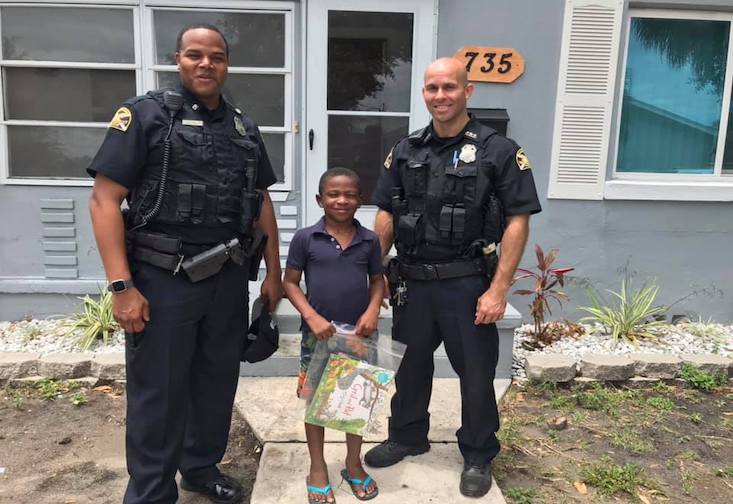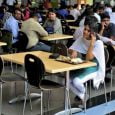
When the pandemic began and schools moved to remote learning, many parents and caregivers were afraid their children would fall behind academically and socially.
Responding to those concerns led USF St. Petersburg campus College of Education professors AnnMarie Gunn and Susan Bennett to team up with the Police Athletic League (PAL) of St. Petersburg, which seeks to inspire hope and transform lives of at-risk youth. Together, they secured funding that provided more than 400 multicultural children’s books to 45 local families at the early outset of the pandemic.
Now two articles published in the Journal of Research in Childhood Education and Reading Teacher illustrate how this initiative encouraged students from low socioeconomic backgrounds to read, discuss social issues with their families and connect with their communities during an unprecedented time. The academic articles also provide guidance on how such literary partnerships can be replicated in other communities.
“The biggest take-away was that it wasn’t necessarily about just giving books to kids, but about the kinds of books, and, in this case, multicultural books that reflect the identities of the kids PAL serves,” Gunn explained. “They were so impactful that parents were taking the books to the barbershops because they wanted other kids to read these books. Many parents stated they wished they had books like these when growing up.”
The assortment of multicultural books were purchased through a $3,000 gift from the Koren Family Foundation and another $1,000 from the Community Foundation of Tampa Bay’s Fundholder Match Program. Books were given to around 80 children in grades K-8, who are part of PAL’s afterschool program.
The award-winning reading materials, which were identified thanks to the diligent work of volunteer Barbara Peterson, covered culturally responsive issues, dealt with social and emotional learning and discussed the pandemic in an age-appropriate way. Some of the books selected included “Germs! Germs! Germs!,” “Brown Girl Dreaming” and “Those Shoes.”
“These were books that we hoped would resonate with the kids and who could identify with the characters. One girl said ‘she looks like me’ when showing the cover of a book to her parents,” Gunn said.
When books were delivered to families by PAL officers, each one came with a postcard with information about the book to help children better understand what they were reading. The postcards also provided discussion topics for parents to talk with their kids about sensitive topics.
“There were questions on the postcards that parents could ask their kid about the book, and a space where kids could draw a picture and parents could provide feedback” Bennett said. “Asking questions while children are reading is an important comprehension strategy and provides time for reflection.”
The professors used feedback from the postcards, surveys with parents and children who participated in the program and interviews with PAL employees to inform their research. The literary partnership and findings from the research proved to be of such interest that the National Institutes of Health selected one of the journal articles for free publication so everyone would be able to access it.
“With the pandemic, we really had to rethink how we conduct research, especially within the community. And with this literary initiative, we were able to do that while pursuing our passion of social justice and equity,” Bennett said.
Going forward, Gunn and Bennett hope they can build on the successful partnership they created with PAL and work with other after school centers in communities around St. Petersburg to create similar literacy programs.
[“source=usf.edu”]




